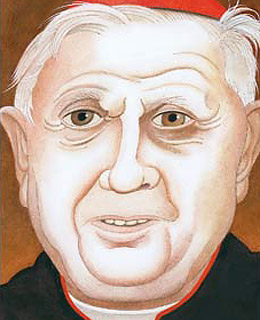
Even before Pope John Paul II's death, few people in the Roman Catholic Church wielded as much power as Joseph Cardinal Ratzinger, 77. His opponents regard him as a Vatican Rasputin, pulling strings, enforcing orthodoxy, silencing dissent. Supporters view him as the Vatican's intellectual powerhouse, a man who rescued a drifting church from the sirens of modern life toward the truths of its own teaching, and a possible candidate for the next papacy. Both sides may be right. Ratzinger has been a tough theological enforcer in the church for more than two decades. Once an enthusiast for the liberalizing reforms of the Second Vatican Council, he later wondered if they had gone too far. Call him one of the first theo-conservatives—a former liberal mugged by what he saw as the reality of religious laxity. His response: to reassess the importance of the papacy as a means of asserting control over the church, to insist on the otherworldliness of religious faith and its imperviousness to changes in society. In 1981 John Paul II made Ratzinger the guardian of Catholic orthodoxy, a position he has held ever since. In that role, he has reached back to older traditions and helped resuscitate them. Church attendance is down, but, as he said recently, "the essential things in history begin always with the small, more convinced communities."
Sullivan is a TIME contributor and senior editor at The New Republic